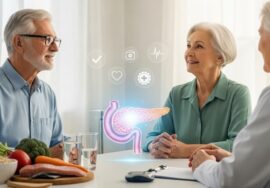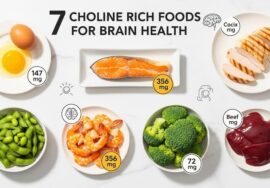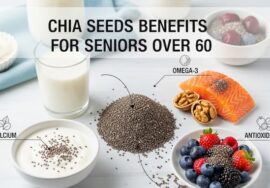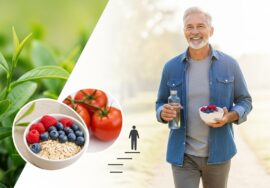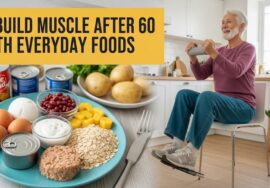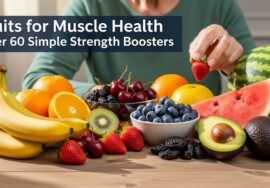Aging is something everyone deals with, but the idea of reversing it has sparked serious curiosity. Is it possible to actually get younger—not just in appearance, but inside your body? Some experts believe we may be closer than ever to answering that question.
Let’s walk through the facts in plain English—no hype, just what’s real, what’s rumored, and what might actually work.
Table of Contents
- What Is Aging, Really?
- Can We Reverse This Process?
- What Science Is Exploring Right Now
- Clearing Out “Old” Cells
- Boosting NAD+ Levels
- Telomeres and Youthful DNA
- Activating Autophagy
- Natural Ways to Help Your Body Stay Younger
- Be Wary of Empty Promises
- Key Takeaways
- FAQs – Honest Answers to Common Questions
- Final Thought
What Is Aging, Really?
When people say “aging,” they usually think of wrinkles, fatigue, or gray hair. But inside your body, a lot more is going on. Your cells slow down, your energy dips, and your organs start to work less efficiently.
Some of the root causes include:
- Damage to cells over time
- Poor recycling of old proteins
- Telomeres shortening (these protect your DNA)
- Oxidative stress (think of it like internal rust)
- Chronic inflammation building up in the body
These changes don’t happen overnight, but they add up. That’s what makes you feel—and look—older.
Can We Reverse This Process?
Slowing aging and reversing it aren’t the same thing.
- Slowing aging means keeping damage low so your body stays stronger for longer.
- Reversing aging would mean restoring function that has already declined—literally turning back the clock.
Right now, we have ways to slow aging that actually work. Reversing it? That’s still being researched.
What Science Is Exploring Right Now
Here are a few areas where researchers are digging deep:
1. Clearing Out “Old” Cells
Your body hangs onto damaged cells—called senescent cells—that no longer do their job. These cells give off harmful signals. Some studies are testing ingredients that target and remove these cells. It’s early, but the results are promising.
2. Boosting NAD+ Levels
NAD+ is a molecule your cells use for energy and repair. As you age, your NAD+ levels drop. Supplements like NMN and NR may help increase it. Some people say they feel more alert, but results vary from person to person.
3. Telomeres and Youthful DNA
Your DNA ends are protected by telomeres. The shorter they get, the older your cells behave. A few labs are looking into how to make telomeres longer again. But this is complex science, and it’s still in early testing stages.
4. Activating Autophagy
Autophagy is your body’s natural way of cleaning out worn-out parts. This process slows down with age. But things like intermittent fasting, cold therapy, and plant-based antioxidants may help restart it.
Natural Ways to Help Your Body Stay Younger
You don’t need expensive gadgets or risky injections. Some of the best ways to support your body come from basic habits:
- Cold showers or short bursts of cold exposure can boost circulation and energy.
- Infrared light may help with skin tone and muscle recovery.
- Walking after meals helps with blood sugar and digestion.
- Cutting down on sugar can reduce “sugar damage” in tissues (known as glycation).
- Grounding, or walking barefoot on natural surfaces, may lower stress and inflammation.
These simple steps can add up over time, especially when done consistently.
Be Wary of Empty Promises
Just because something says “anti-aging” doesn’t mean it works. Some creams, pills, or biohacking gadgets don’t live up to their claims. Always ask: Is there evidence? If not, save your money.
Also, no matter how advanced science becomes, aging is still a natural process. The goal isn’t to live forever—but to live better, for longer.
Key Takeaways
- Complete reversal of aging isn’t here yet, but some cell functions may be restorable in the future.
- You can take real steps today to slow aging and support longevity.
- Many tools are already in your hands—diet, movement, sleep, and stress management.
- Most “quick fixes” don’t work. Stick with what’s proven.
FAQs – Honest Answers to Common Questions
Can supplements make you younger?
They can support your health, but none can reverse aging. Look for ones backed by research.
Does cold therapy actually help?
It may improve circulation, boost mood, and support recovery—especially when done consistently.
Is fasting good for anti-aging?
Short fasting periods may trigger autophagy, which helps remove damaged cell parts.
What’s the deal with NAD+?
It’s important for cell repair. Boosting NAD+ might help, but results vary between individuals.
Can I grow longer telomeres?
It’s possible in theory, but in practice, the science isn’t there yet for everyday use.
Final Thought
Aging doesn’t have to mean decline. You can age with strength, with clarity, and with energy. The idea of reversing aging may one day be real—but right now, living wisely is still the most powerful tool we have.
Tags:
#ReverseAgingNaturally #HealthyLongevity #NADPlusSupport #TelomereHealth #USAWellnessTips #AutophagyScience #LowSearchHealthTerms

